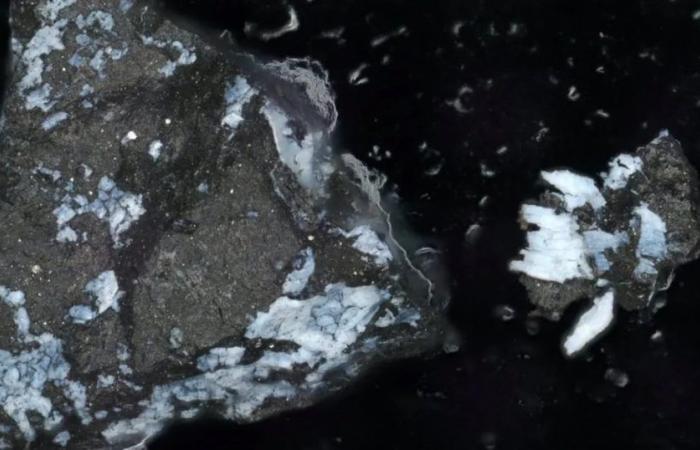An early analysis of a sample collected from the asteroid Bennu suggests that this space rock had an unexpectedly water-rich past, and even could have broken off from an ancient ocean world. The mission OSIRIS-REx of the POT collected the pristine 121.6-gram sample from the asteroid in 2020 and returned it to Earth in September last year.
Since then, Scientists have been analyzing the asteroid’s rocks and dust to reveal what secrets they may hold about its composition. and whether it could have brought the elements necessary for life to Earth.
An initial review of some samples, shared in October, suggested that the asteroid contained a large amount of carbon. During a new analysis, The team discovered that Bennu’s dust, in addition to carbon, is rich in nitrogen and organic compounds, all essential for life.. Ingredients are also crucial to understanding how Earth-like planets evolve.
A study detailing the findings appeared in the journal Meteoritics & Planetary Science. “OSIRIS-REx gave us exactly what we expected: a large sample of pristine, nitrogen- and carbon-rich asteroid from a formerly wet world“, said Jason Dworkinproject scientist OSIRIS-REx at NASA’s Goddard Space Flight Center in Greenbelt, Maryland, in a statement.
The biggest surprise was finding sodium magnesium phosphate within the samplecompounds that remote sensing had not found when OSIRIS-REx was orbiting Bennu. This phosphate is a key component for the biochemistry of life.
“The presence and state of phosphates, along with other elements and compounds on Bennu, suggest a watery past for the asteroid“, he claimed Dante Laurettaone of the main researchers of OSIRIS-REx and regent professor at the University of Arizona, Tucson, in the release.
The asteroid sample It is composed primarily of clay minerals, including serpentine, making the sample remarkably similar to rocks found at Earth’s mid-ocean ridges.These ridges are where material from the mantle, the layer beneath the Earth’s crust, encounters water.
The rocks collected on Bennu represent a time capsule of the early days of the solar system dating back more than 4.5 billion years. “The sample we returned is the largest repository of unaltered asteroid material on Earth at this time.”Lauretta said.
Astronomers believe that space rocks such as asteroids and comets may have served as ancient messengers in our solar system.
According to Nick Timmsmember of the sample analysis team OSIRIS-REx and Associate Professor in the School of Earth and Planetary Sciences at Curtin University: “Stars like these may have played a key role in providing water and the building blocks for life on Earth.”.
Investigating findings like this It is important to study asteroid materialespecially low-density material that would normally burn up upon entering Earth’s atmosphere.
“This material holds the key to unraveling the intricate processes of solar system formation and the prebiotic chemistry that may have contributed to the emergence of life on Earth.”Lauretta stated.
The richness of material collected from the asteroid means that More laboratories around the world will receive their own sample pieces for study.
“The Bennu samples are extraterrestrial rocks of tantalizing beauty“, he claimed Harold Connolly Jr.mission sample scientist OSIRIS-REx and chair of the geology department at Rowan University’s School of Earth and Environment in Glassboro, New Jersey, said in the statement.


